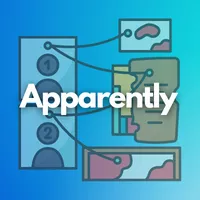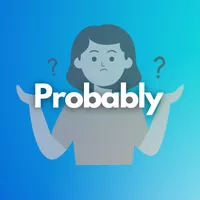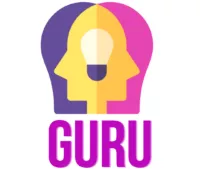Key Difference: Many people don’t know the exact meanings of the words apparently and probably. But they use those words incorrectly. If you learn the purpose or usage of the words, you can use them confidently. The term “apparently” refers to something that is open to viewing or proving something evidently. On the other hand, the word “probably” refers to being sure about something. This tutorial will show you the contradictions of these terms with proper explanations.
Apparently: Apparently, she doesn’t like it.
Probably: You are probably right.
 |  |
Apparently:

Something is open to view.
We can use the word “apparently” when we know the truth about something. In other words, we can use it when we clearly see something. We can use this term at the start or middle of the sentence. Here we come up with another example for your reference. Apparently, she was wrong. From this statement, we might understand that someone is wrong. Let’s see another example for your quick understanding. Apparently, it’s going to rain today. From this statement, we might understand that It will rain today.
How Do We Spell the Word Apparently?
The phonetics pronunciation of the word Apparently is əˈparəntli. And this word sounds like the following audio.
Enunciation:
Syllabification refers to the process of division of words into smaller parts. It is commonly known as syllables. With its help, you can easily read and spell the word accurately. Here, you will see how to split the word “Apparently” by syllables.
- The word “Apparently” has four syllables.
- It can be divided into “Ap-Par-ent-ly.”
Using “Apparently” in sentences:
- Apparently, that’s not correct.
- He was apparently much surprised at the news.
- Apparently, you have done a great job.
- She apparently lacked the desire to learn.
- Apparently, it’s going to rain today.
Probably:

Doubtless.
The word “probably” is used to denote something that will surely happen. To make it precise, we can use it when being sure about something. Let’s see an example to make it clear for you. We will probably go to our hometown during the holidays. From this statement, we might understand that some people will go to their hometown for every holiday. Here we come up with another example for your reference. They probably come by car. From this statement, we might understand that they will come by car.
How Do We Spell the Word Probably?
The phonetics pronunciation of the word Probably is ˈprɒbəbli. And this word sounds like the following audio.
Enunciation:
Syllabification refers to the process of division of words into smaller parts. It is commonly known as syllables. With its help, you can easily read and spell the word accurately. Here, you will see how to split the word “Probably” by syllables.
- The word “Probably” has three syllables.
- It can be divided into “Prob-a-bly.”
Using “Probably” in sentences:
- She is probably sleeping now.
- It’s probably a warning, so you should be careful.
- I will probably be a little late to the office today.
- This building was probably 80 years old.
- It will probably take about a week.
Compare: Apparently Vs Probably
This table will show the contradiction between the words’ Apparently and Probably.
| Apparently | Probably | |
|---|---|---|
| Definition | Clear evidence about something | Almost sure about something. |
| Synonyms | Seemingly, evidently, by all accounts, reputedly | In all probability, likely, doubtless |
| Antonyms | improbably, unlikely, dubiously, uncertain | uncertain, unlikely |
| Etymology | It comes from the Latin apparens, meaning “appearing.” Things that we describe as apparently true appear to be true, but we’re not sure if they’re definitely true—that’s why we used the word apparently. | It is formed from the word probable and the suffix -ly, which is used to make it into an adverb. Probable comes from the Latin probābilis, which means “likely,” “literally,” or “capable of standing a test,” and is equivalent to the verb probā(re) “to test.” This word gives us both probe and prove. |
| Examples | I wasn’t there, but apparently, it was a great function. Apparently, he is a good swimmer, but I’ve never seen him swim. I didn’t see the accident, but apparently, it was her fault. Apparently, tom doesn’t know about the meeting because he didn’t come. | If I were you, I did probably do that. They told me that they probably wouldn’t come. I think most customers probably like soft clothes. What she says is probably true. |
Resources and References:
Resources: Cambridge Dictionary (Apparently, Probably), Merriam-Webster (Apparently, Probably), Collins Dictionary (Apparently, Probably), Dictionary.com (Apparently, Probably) Reference: Dictionary.Cambridge.org[1], Merriam-Webster.com[2], CollinsDictionary.com[3], Dictionary.com[4].
